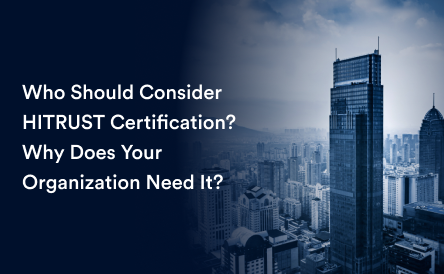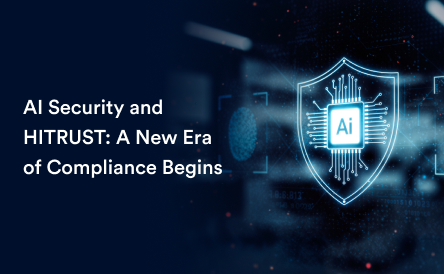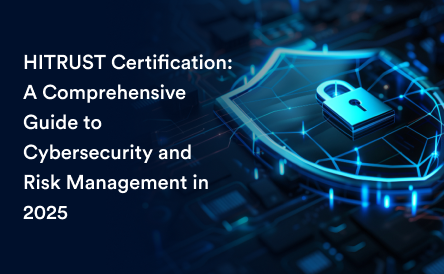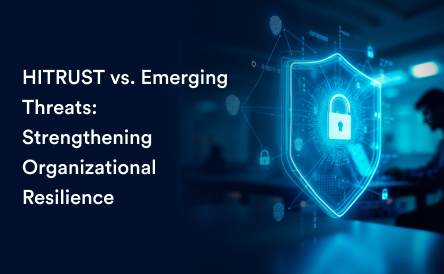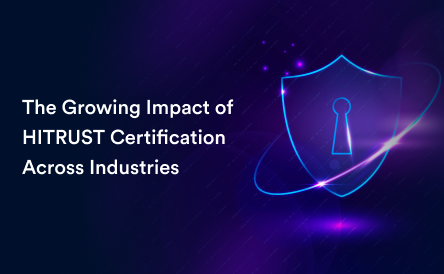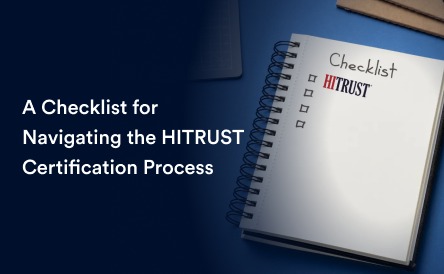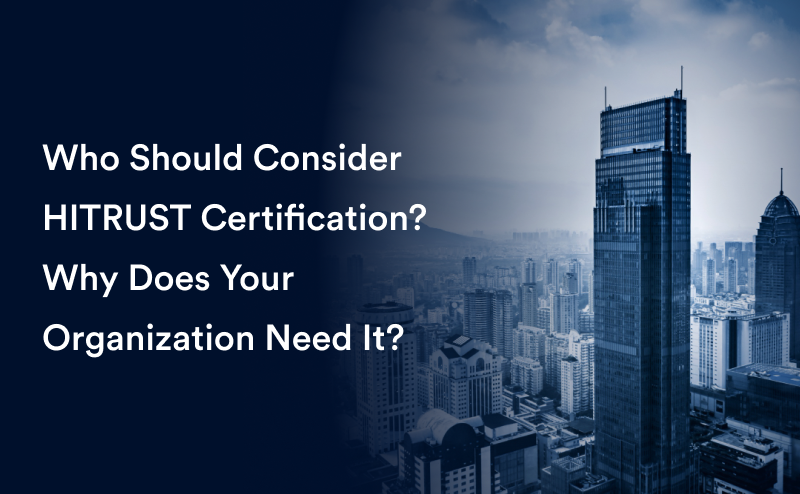
In today’s digital world, data security is more important than ever. Whether you’re in healthcare, finance, technology, or any industry that handles sensitive data, safeguarding that information is essential — not just for compliance, but for building trust with customers and partners.
That’s where HITRUST certification comes in. HITRUST offers a comprehensive framework that simplifies compliance with multiple regulatory standards while helping organizations strengthen their cybersecurity posture. But who is HITRUST certification really for? And why should your organization consider pursuing it? Let’s explore.
Understanding HITRUST Certification
HITRUST, which stands for the Health Information Trust Alliance, created the Common Security Framework (CSF) to help organizations manage security, privacy, and compliance risks in a structured and unified way. Unlike many other frameworks, HITRUST combines multiple regulations and standards — like HIPAA, ISO 27001, NIST, and GDPR — into a single framework.
What makes HITRUST unique is that it’s both adaptable and certifiable. Whether you’re a small business or a multinational corporation, the HITRUST CSF can be tailored to meet your specific needs. By achieving certification, you’re not only proving compliance but also showing that your organization takes data security seriously.
Who Should Consider HITRUST Certification?
While any organization that handles sensitive or regulated data can benefit from HITRUST certification, some industries and use cases stand out:
1. Healthcare Providers and Business Associates
If your organization deals with protected health information (PHI) — whether you’re a hospital, clinic, or health insurance provider — HITRUST certification is a natural fit. It provides a clear roadmap for meeting HIPAA requirements while addressing broader security concerns.
Even if you’re not a healthcare provider but work with PHI as a vendor or service provider (e.g., IT companies or cloud providers), HITRUST certification can help you win business. Many healthcare organizations now require their business associates to be HITRUST-certified to ensure consistent security practices.
Examples:
- Hospitals and clinics
- Health plans and insurance companies
- Electronic health record (EHR) vendors
- IT service providers supporting healthcare organizations
2. Financial Services Firms
The financial industry is another prime candidate for HITRUST certification. With its focus on risk-based controls, HITRUST can help financial institutions comply with regulations like the Gramm-Leach-Bliley Act (GLBA) and PCI DSS while minimizing the risk of data breaches.
HITRUST certification is especially valuable for FinTech companies, banks, and payment processors looking to reassure clients and regulators that their security measures meet the highest standards.
Examples:
- Banks and credit unions
- Payment gateways and processors
- Wealth management firms
- FinTech startups
3. Cloud Service Providers
If your business operates in the cloud, HITRUST certification can be a powerful differentiator. Cloud providers that support regulated industries — like healthcare and finance — need to demonstrate that they can securely manage customer data. HITRUST certification provides that assurance.
For companies offering Infrastructure-as-a-Service (IaaS), Software-as-a-Service (SaaS), or Platform-as-a-Service (PaaS), achieving HITRUST certification can open doors to new partnerships and clients who demand high levels of data security.
Examples:
- Cloud hosting providers
- SaaS platforms managing sensitive data
- Data backup and recovery services
4. Technology and IT Service Providers
If your company provides IT solutions or consulting services, HITRUST certification can boost your credibility. Many clients, especially in regulated industries, want to ensure their vendors meet strict security requirements. By becoming HITRUST-certified, you show that your organization meets these expectations.
Examples:
- Managed service providers (MSPs)
- Cybersecurity firms
- Software development companies
5. Government Agencies and Contractors
Government entities handle massive amounts of sensitive data, from health records to financial information. HITRUST certification aligns closely with federal standards like FISMA and NIST SP 800–53, making it a valuable tool for public sector organizations and contractors managing citizen data.
Examples:
- Federal, state, and local government agencies
- Government contractors managing public healthcare systems
- Public-sector IT service providers
Why Does Your Organization Need HITRUST Certification?
1. Simplified Compliance with Multiple Regulations
One of the biggest advantages of HITRUST is that it consolidates multiple frameworks into one. Instead of juggling HIPAA, GDPR, ISO 27001, and other standards separately, HITRUST lets you meet these requirements through a single, unified process.
2. Stronger Cybersecurity Posture
HITRUST certification goes beyond compliance — it’s a proactive approach to cybersecurity. By implementing risk-based controls and continuously monitoring for vulnerabilities, you reduce the likelihood of data breaches and strengthen your overall security posture.
3. Build Trust with Stakeholders
In industries where trust is everything, HITRUST certification sends a clear message: you’re serious about protecting sensitive information. This can help you stand out from competitors, win new business, and build lasting relationships with customers, partners, and regulators.
4. Meet Vendor and Partner Expectations
More and more organizations are requiring their vendors to achieve HITRUST certification. If you want to work with regulated industries, being HITRUST-certified may no longer be optional — it’s becoming a baseline requirement.
5. Streamline Audit Processes
HITRUST certification provides a framework for ongoing compliance, reducing the complexity of audits and inspections. By consolidating your compliance efforts under HITRUST, you save time and resources during regulatory reviews.
Getting Started with HITRUST Certification
Achieving HITRUST certification is a journey, but it’s one that pays off. Start by assessing your current security practices to identify any gaps. From there, work with a HITRUST-certified assessor to prepare for the certification process.
If you’re new to HITRUST, partnering with an experienced consultant can make all the difference. They’ll guide you through the requirements, help you address deficiencies, and ensure you’re audit-ready.
For professional guidance, reach out to Praveen Kumar at Finstein:
Email: Praveen@Finstein.ai
Phone: +91 99400 16037

